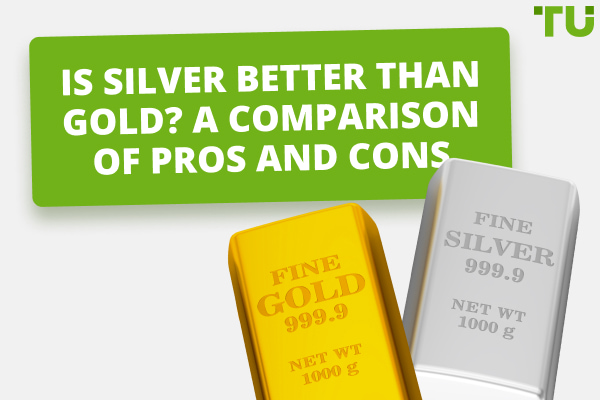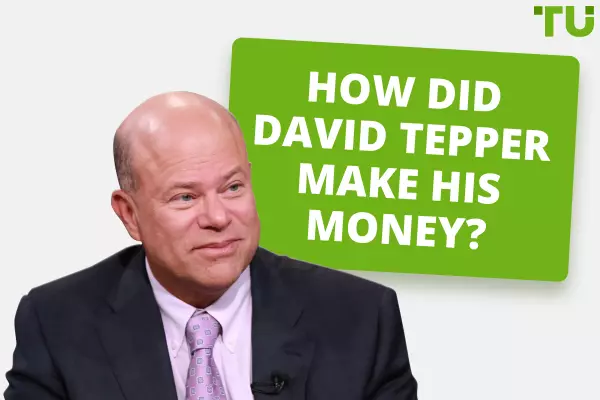Alphabet's GOOG vs. GOOGL: What's the Difference?
GOOGL (Class A) shares have voting rights, while GOOG (Class C) shares do not. Your choice depends on whether you want a say in corporate decisions.
In stock trading, where precision and informed decisions are key, it's very common to encounter confusion. This particularly happens when the shares of the same company, in this case, Alphabet, are listed on the same exchange, Nasdaq. These shares, GOOG and GOOGL, may appear nearly identical at first glance, but subtle differences can significantly impact your investment strategy.
In this article, we aim to get into the intricacies of these seemingly similar stocks, bringing out the distinctions that set them apart and helping you to be aware while choosing among them.
Start trading stocks now with RoboForex!What are class A and B and C shares?
Class A, B, and C shares are a common classification system used by companies to issue different types of stock with varying attributes.
Class A Shares
Class A shares typically come with voting rights, which means shareholders have a say in the company's decisions. These shares are usually held by the company's founders, insiders, or early investors to retain control.
Class B Shares
Class B shares often have more voting power per share than Class A shares. These are usually held by company insiders and executives.
Class C Shares
Class C shares usually do not carry voting rights or have significantly reduced voting rights. These are often issued to the public through initial public offerings (IPOs) and may be more affordable for retail investors.
For example: Alphabet, Inc. and Facebook, Inc. (Meta Platforms, Inc.) have class A, B, and C shares, and as per your choice of investment, you can invest in any of these.
Differences between GOOG and GOOGL
-
Voting rights. GOOGL (class A shares) have voting rights and GOOG (class C shares) typically do not offer voting rights
-
Price variations. GOOGL shares often trade at a slightly higher price compared to GOOG shares due to the voting rights associated with class A shares
-
Earnings per share (EPS). GOOGL and GOOG may have different EPS values due to the varying number of outstanding shares
-
Historical performance. GOOGL and GOOG may show subtle differences in historical stock performance, influenced by factors like investor sentiment and trading volume
-
Investor profiles. GOOGL shares may attract investors seeking both potential returns and a say in corporate decisions. GOOG shares may appeal to investors primarily focused on capital gains without significant influence over the company
-
Corporate governance. GOOGL shareholders may attend and vote in company meetings, potentially affecting the company's direction. GOOG shareholders generally have no direct role in corporate governance
-
Insider holdings. Company insiders and founders may hold GOOGL shares to maintain control and influence in corporate matters. GOOG shares might be more widely held by public investors
Which is better to invest in: GOOG or GOOGL
The decision between investing in GOOG (Class C shares) or GOOGL (Class A shares) relies on your investment decision and choices. Understand this simplified breakdown before choosing.
GOOG (Class C):
-
Typically more affordable than GOOGL shares
-
It does not carry voting rights or has limited voting rights
-
It's attractive if you're primarily interested in potential capital gains and don't require a say in corporate decisions
GOOGL (Class A):
-
Often traded at a slightly higher price than GOOG shares
-
It comes with voting rights, allowing you to have a say in corporate matters
-
Suitable if you want both potential returns and the ability to influence company decisions
How to buy GOOG and/or GOOG?
To buy GOOG (Class C) or GOOGL (Class A) shares, follow these steps:
-
1
-
2
Fund your account
-
3
Research and analysis
-
4
Place an order
-
5
Choose your order type
-
6
Specify the number of shares
-
7
Review and confirm
For more detailed guidance on the steps, check out How to buy GOOGL stocks in 6 steps at Traders Union.
Best stock brokers 2024
FAQs
How to choose a broker to buy a stock?
Select a reputable stock broker using expert ratings and recommendations. Find the right stockbroker with expert ratings and recommendations at How to choose a broker for online stock trading.
Is GOOG stock a good buy?
Consider GOOG based on your investment goals and research. Explore expert forecasts and insights on GOOG's potential performance at GOOG stock forecast at 2024,2025,2030.
Is it better to buy GOOG or GOOGL?
The choice depends on your goals - GOOGL (with voting rights) or GOOG (without) - tailor your investment to your priorities.
How high will GOOG stock go?
Stock prices are influenced by a wide range of factors, including company performance, economic conditions, market sentiment, and geopolitical events, and predicting their future movement with precision is extremely difficult.
Team that worked on the article
Upendra Goswami is a full-time digital content creator, marketer, and active investor. As a creator, he loves writing about online trading, blockchain, cryptocurrency, and stock trading.
Professionally, he has been a marketing professional running his agency for three years now. His agency helps finance projects to grow with the help of internet technologies. Upendra Goswami is an active investor and enthusiast of stocks and cryptocurrency.
Knows about
trading, blockchain, cryptocurrency, stock trading
Alumnus of
JECRC UDML College of Engineering, Jaipur
Dr. BJ Johnson is a PhD in English Language and an editor with over 15 years of experience. He earned his degree in English Language in the U.S and the UK. In 2020, Dr. Johnson joined the Traders Union team. Since then, he has created over 100 exclusive articles and edited over 300 articles of other authors.
The topics he covers include trading signals, cryptocurrencies, Forex brokers, stock brokers, expert advisors, binary options. He has also worked on the ratings of brokers and many other materials.
Dr. BJ Johnson’s motto: It always seems impossible until it’s done. You can do it.
Mirjan Hipolito is a journalist and news editor at Traders Union. She is an expert crypto writer with five years of experience in the financial markets. Her specialties are daily market news, price predictions, and Initial Coin Offerings (ICO). Mirjan is a cryptocurrency and stock trader. This deep understanding of the finance sector allows her to create informative and engaging content that helps readers easily navigate the complexities of the crypto world.











